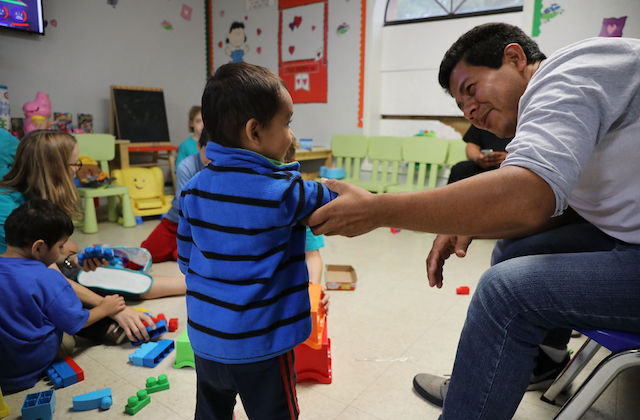When migrants are released from detention in San Diego it is because they were given permission to pursue asylum in the United States. Under normal circumstances, the federal government would provide support to migrants in need, but with a huge backlog of people seeking asylum, many are essentially left with two choices: find their own way or turn to a shelter for help.
According to The New York Times, officials used to help by coordinating "plans for their release, contacting family members in American cities and helping secure transportation, even sometimes paying for bus tickets. When charity-operated shelters were full, government agencies sometimes held them a little longer, until they could be transferred."
But this practice, typically referred to as "safe release," ended in October 2018. Now, families are increasingly being released with "nowhere to stay, no money, no food and no means of getting to friends and relatives who may be hundreds or thousands of miles away."
The Times writes that charities along the border wall, from California to Texas, have stepped up to help these families. Now, the question is how long they can continue to help without breaking under the financial strain? "Churches and other nongovernmental organizations" have committed millions of dollars to keeping migrant families safe and assisting with reuniting them with family members already in the U.S.
Kevin Malone, one of the founders of San Diego Rapid Response Network, a consortium of faith-based nonprofits in the area, spoke to The Times about this crisis. "The government isn’t doing anything—it’s been a total make-it-up-as-we-go thing," Malone said. "People are working 24 hours a day trying to make this happen. Everyone is strapped."
These charity networks are dealing with a lot, including the physical and mental health of the migrants. The Times reports, "many ‘guests,’ as the volunteers call the migrants, arrive hungry, sick or traumatized. They need fresh diapers for their infants and clean clothes for their older children."
Some become ill during long, challenging journeys from Central America. On top of medical costs, shelters pay for lodging, food and transportation. Ruben Garcia, director of Annunciation House in El Paso, Texas, said that his org’s housing costs can reach as high as $150,000 per month, depending on the number of people released from detention.
Dee Margo, the mayor of El Paso, addressed the crisis at a recent city council meeting: "It’s kind of hard to ask the federal government for emergency relief when they’re creating the problem to begin with."
